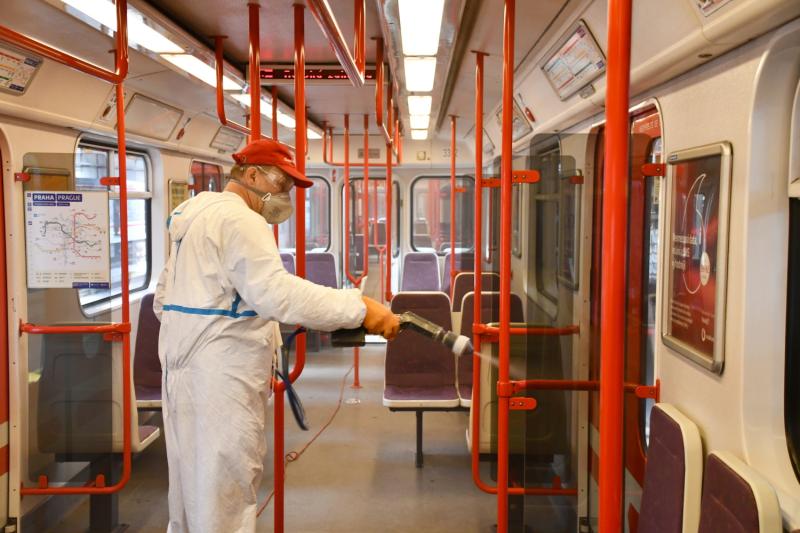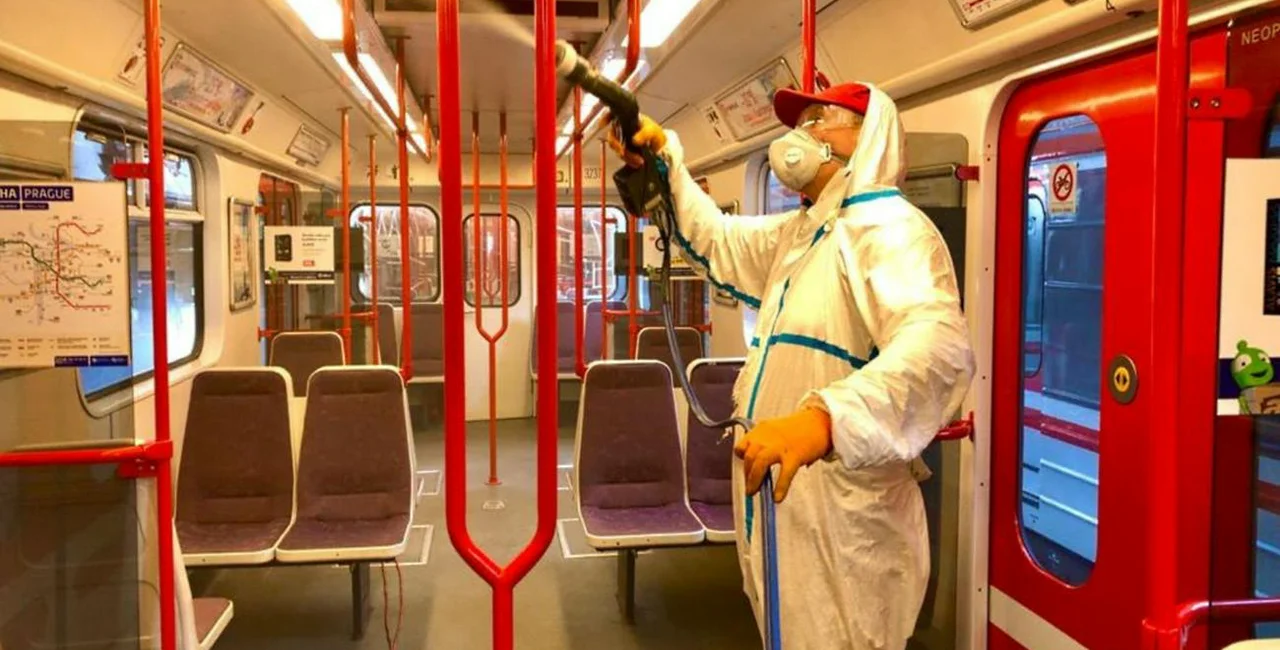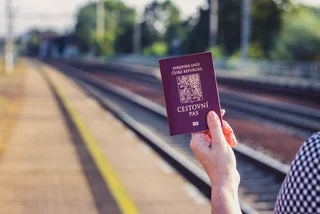All public transit vehicles are getting an antiviral and antibacterial nanotechnology polymer coating, and finished vehicles are marked with stickers. The coatings should last two years.
The interior of metro trains running on line B are already being treated with CleanShield Indoor Coating TiO2 with a broad-spectrum disinfectant effect that kills 99.9% of viruses, bacteria, fungi and mold. The basic active substance of the preparation is titanium dioxide (TiO2) and the declared protective effect of the polymer layer is up to two years.
This follows after the Prague Public Transit Company (DPP) announced on March 10 it was testing of two disinfecting products. CleanShield Indoor Coating is not one of the two brands named in that testing.
DPP will also gradually disinfect cars running on metro lines A and C. Tonight, DPP will also start to apply polymer disinfection to buses and trams.
All 146 DPP metro trains will be treated by mid-April, and surface vehicles will be treated by the end of April at the latest.
The titanium dioxide nanopolymer disinfectant is being systematically applied to all interior vehicle surfaces in aerosol form, treating ceilings, walls, glass, doors, seats, handrails and restraint systems — all areas that people touch or where microorganisms could settle.
Thanks to the natural fallout of the aerosol, the car floor is also disinfected. It takes at least an hour to treat the inside of a 100-meter by five-meter metro train. The wagons must be cleaned using conventional means, and free of graffiti before the application of the nanopolymer.
After disinfection, the wagons must stand and vent for at least another two hours to form a thin, hydrophobic layer of titanium dioxide polymers that cures into a final and fully effective form over the next two days.
“Regular cleaning and the use of 21st century technologies for long-term disinfection will now help us maintain cleanliness in all public transport. I want DPP to be a modern company using all the possibilities of today, even in the field of cleaning and hygiene. Especially now we have to do everything we can to ensure that the Praguers can get where they need to go. This is the number one priority. I would like to thank all DPP employees who have made it possible,” said Prague Deputy Mayor Adam Scheinherr (Praha Sobě), who is alsochairman of the supervisory board of DPP.
On Facebook, he added that “21st century technology offers nothing better” and went on to describe in detail how it works.
Petr Witowski, chairman and CEO of DPP, said he was glad the company succeeded in implementing the latest trends in high-performance and long-term efficiency in the vehicle cleaning and disinfection process. “As a result, we can increase the sense of passenger safety in public transport. It is not only important during a very difficult time, but also a very important quality parameter for the future,” he added.
“During the selection process we focused not only on the longest declared effectiveness of the products, international certificates and on the experience of other transport companies, but also on the speed and efficiency of product application. In addition to the positive effect for both passengers and our employees, we have also taken into account the impact on existing cleaning processes, which can be streamlined, simplified and ultimately reduced overall through the application of new technology,” he added.
“Nevertheless, we will verify the effectiveness of the new technology by means of control swabs, which will be taken every six months from 10 randomly selected trams, 10 buses and 10 metro cars. If the supplier fails to comply with its declarations, we will require repeated disinfection of the cars at their expense,” Witowski concluded.

Disinfection with nanopolymers will take place in the Zličín depot until the end of this week. From next week DPP will continue on A trains in depot Hostivař. Lastly, in the Kačerov depot, M1 trains operated on line C will be repeatedly disinfected with ozone in addition to conventional cleaning. All 146 metro trains should be cleaned with Titanium dioxide by about mid-April.
Passengers can spot which train wagons have nanopolymer protection by looking for a circle-shaped sticker with the words: “Zdravé prostředí – Vyčištěno technologií TiO2” (Healthy Environment – Cleaned with TiO2 technology) affixed to the driver’s cab side door and glass doorway between cars.
In addition to the interior of metro trains, DPP plans to apply the new technology to the treatment of all escalator handles in the metro.
DPP on the evening of March 25 will start with polymer-based disinfection in buses and trams in the Žižkov depot and in the Vršovice garage. Unlike metro wagons, treatment will only take place at night from about 10 pm. The process is a bit different and involves filling the interiors with a fog that covers all interior surfaces. This process takes about 10 minutes.












 Reading time: 4 minutes
Reading time: 4 minutes 


 English
English
 Spanish
Spanish
 French
French


























